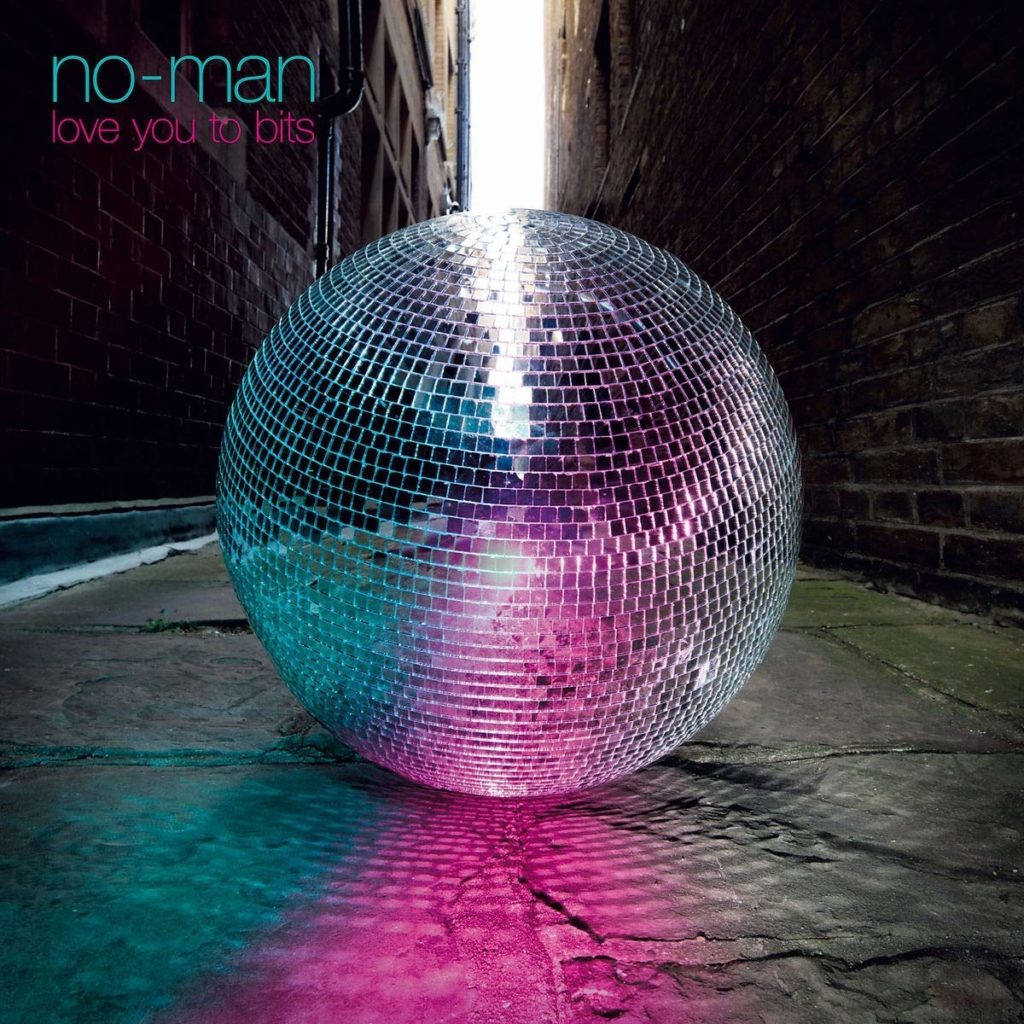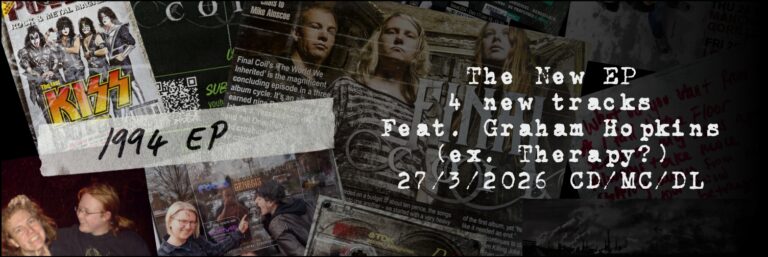
No Man is the on-off collaboration between multi-instrumentalist and noted producer Steven Wilson and singer Tim Bowness. Formed way back in 1987, No Man has quietly gone about conquering the underground, one listener at a time, seemingly untouched by the commercial explosion of latter-day Porcupine Tree and yet consistently releasing records of equal, if not superior quality. Adopting a wide-ranging approach to music making, No Man have dealt in trip hop, pop, Scott-Walker-esque balladeering (most notable on the dreamlike Schoolyard Ghosts) and now, some eleven years after their last album, the band have returned to a more synth-oriented sound with Love You To bits. An ambitious conceptual work, Love You To Bits eschews standard song titles for two, five-part suites: Love You To Bits (parts 1-5) and Love You To Pieces (parts 1-5), which detail the wonderful, opening moments of a new love and the bitter, inevitable collapse that follows. Represented as a single night out, the glorious rush of the first half gives way to the more reflective material of the second, and it’s impossible not to be drawn into the world that Wilson and Bowness create.
Opening the album’s first half, the giddy, loved-up synth-scape of Love You To Bits Part 1 recalls the eerie progressive throb of The Orb filtered through the tough beats of Orbital. For those who joined the band for Together We’re Stranger and Schoolyard Ghosts it’s hard to fathom that this is the same band, although Tim’s instantly recognisable vocals give the game away when he emerges, like a progressive Philip Oakey, to declare his love for the song’s unnamed subject. Steven Wilson’s studio expertise is equally apparent when the tough synth beat is suddenly joined by live instrumentation, the track expanding exponentially as guitar and backing vocals tumble over one another. It’s an immense opening track, sonically flawless and operating in a musical realm currently inhabited only by Losers and latter-day Ulver. It segues neatly into the shortest of interludes in Part 2, only the rumbling synth line keeping things dynamic before fading down, leading the listener to the false conclusion that the end has been reached. Not so and, if the similarly short Part 3 introduces a stinging funk riff powered by a raging disco beat, it’s only a gateway to the Underworld-esque comedown of Part 4, a nod to the album-oriented dance scene of the mid-90s that saw dance music move away from disposable singles towards the more coherent, narrative LP-format of its rock brethren. Deftly mixing live instruments and the most dance-floor-friendly beats, Steven’s liquid guitar work adds the sort of psychedelic dimension that has been the province of System 7, although a frantic jazzy break, all noise and dissonance, is pure Wilson; as if the tough discipline imposed by the relentless synths caused a mid-song breakdown, and it’s utterly devastating. If Part 4 represents the song’s dizzying high, then Part 5 brings it all together, returning to the mantra of Part 1 and bringing the first side of the album to an immensely satisfying close, even allowing for a short, brass coda that is incongruous on paper and entirely fitting on record.
After the explosive, amphetamine-fuelled rush of Love You To Bits, Side two’s Love You To Pieces is the crushing aftermath of a relationship gone wrong. Where Side one practically overflowed with libidinous energy, Love You To Pieces Part 1 takes its time to emerge from a dark, regret-filled lament, underpinned by darkwave beats that echo and clang as if to emphasise the emptiness of Bowness’ lyrics. When a heavier beat does emerge, almost three-minutes into the track, it’s worn down by the weight of loss, the atmosphere closer to that of Depeche Mode’s heroin years, and it’s used sparingly, Wilson breaking up the flow to allow for moments of clear-eyed reflection amidst the sumptuous instrumentation. However, behind the regret, there’s a core of steel that suddenly flares up on the proto-industrial Part 2, where Bowness (filtered through a phalanx of effects) intones “we got everything right… and everything wrong”, the anger that inevitably comes with any breakup sublimated into dark, groaning synths incongruously overlaid with corrupted jazz organ and you’re left thinking that, if we’re in some fantasy nightclub, then flames would be shooting from the stage around now, possibly cooking the skimpily-clad dancers in the front line. Following on from the scarcely-concealed rage of Part 2, Part 3 sees a light appear at the end of the tunnel as regret and nostalgia mix sweetly in the airy synth leads Wilson introduces before floating away on the ethereal tones of Part 4. However, there remains a sense of uncertainty and, as the sweet wave of bliss collapses, Part 5 finds Bowness returned to earth with a bump, the sound of children playing in the street and a sense of gentle longing lingering after the night’s excesses. Arguably the closest track to anything from the likes of Schoolyard Ghosts, it provides the perfect coda to the record and, when it suddenly vanishes, the listener is left very much ready to return to the start – to run the risk of the comedown if only to experience that heady rush of excitement once again.
No Man remains a project that Steven Wilson and Tim Bowness (both esteemed solo artists) will only deign to pick up when they have a worthy concept and, in Love You To Bits they have hit on a winning formula. Drawing inspiration form the ambient and big beat exponents of the mid-90s, you could trace a lineage to Chemical Brother’s unparalleled Dig Your Own Hole, an album that similarly traced a single night on the tiles, from the hedonistic rush of Block Rockin’ Beats to the mad morning after of Private Psychedelic Reel; with the added intensity that comes from Bowness’ perfectly phrased delivery. Progressive, yet with an accessibility that should see several of the tracks jamming dance floors, Love You To Pieces is a varied, surprising and consistently enthralling record that has to be heard in one sitting in order to appreciate the underpinning ambition. Easily the duo’s best record to date, it’s flawless in both design and execution. 10/10



